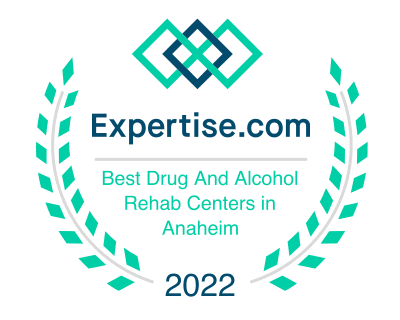New England was the early epicenter of the opioid epidemic in the United States before opioid abuse quickly engulfed the rest of the country. Massachusetts is again in the spotlight as new data show that overdose deaths related to fentanyl and other opioids are rising. Understanding opioid addiction in Massachusetts may shed light on vulnerable communities elsewhere in the country.
Timeline of the U.S. Opioid Epidemic
The opioid epidemic in the United States had its origins in the 1990s when pharmaceutical companies began aggressively marketing prescription painkillers like Oxycontin and Vicodin. Medical providers widely prescribed these medications, in some cases, because they believed that the drugs were non-addictive. Unfortunately, people taking prescription painkillers gradually develop physiological dependence on them. That means that their bodies become accustomed to the opioids, requiring larger or more frequent doses to achieve the same painkilling effect. People also develop behavioral addiction, in which they crave the drug and spend large amounts of time finding, using, and recovering from opioid use.
The New England area, including Massachusetts, was hard hit in the early stages of the opioid crisis. People legally prescribed prescription painkillers became addicted and began taking more pills. Once their prescriptions ran out, they began buying the medications illegally from street dealers. In many cases, high poverty rates, chronic pain, and untreated mental health problems like depression and anxiety-fueled opioid addiction in Massachusetts.
By the 2000s, scientists knew that prescription painkillers were far more addictive than previously thought. In fact, Purdue Pharma reformulated Oxycontin in 2010 to make it harder to abuse by crushing and injecting. The Centers for Disease Control and Prevention also implemented changes to physician prescribing practices in 2016. This is recommended against prescribing painkillers to people dealing with chronic pain.
Unfortunately, these changes were too little, too late for many people facing the crisis in Massachusetts and across the nation. As prescription painkillers became difficult to obtain legally, street prices spiked. Unable to afford their preferred drugs, many people suffering from addiction turned to heroin, a cheaper form of opioids. This led to the “second wave” of the opioid crisis, which was deadlier than the first. In fact, a new analysis shows that people prescribed at least three months of painkillers were more than 30 times more likely to die of an overdose within five years.
More recently, the synthetic opioid fentanyl has taken hold in a new wave of the opioid epidemic. Fentanyl is 50 to 100 times more potent than morphine. That means that even a tiny dose can cause major effects. Dealers often cut other products with fentanyl, sometimes without users’ knowledge. This significantly increases the risk of a drug overdose.
New Data Show the Extent of Opioid Addiction in Massachusetts
Public health experts continue to explore the causes of opioid addiction. Now, new data from the Massachusetts Department of Public Health show how the crisis evolved with unprecedented detail. By looking at a city-by-city level, scientists can help to determine why some communities are hit hard by substance abuse while others are not.
One of the first things this new analysis reveals is that Massachusetts continues to lead the nation in overdose deaths. Since 2000, the number of overdose deaths in Massachusetts has steadily increased each year, always outpacing the national average. The peak came in 2016, with just over 30 deaths per 100,000 people. In 2017 and 2018, rates lowered somewhat but remained more than 5-fold higher than in 2000.
This massive increase in opioid-related overdose deaths is driven primarily by fentanyl. In 2014, when fentanyl was just beginning to hit U.S. markets, approximately 40% of overdose deaths tested positive for the substance. Within just two years, that number was 70% of overdose deaths. And in 2019, 94% of fatal overdose victims screened positive for fentanyl. This highlights just how pervasive and deadly fentanyl is.
The high level of detail in the new data help scientists understand exactly how the opioid crisis is changing. One important factor is why some communities are more vulnerable to overdose than others. Public health experts long thought that socioeconomic status was a major factor, with poorer cities facing worse outcomes. Massachusetts’ new data do not fully support that idea, as some poor communities have lower overdose rates than their wealthier neighbors. Another idea is that location may matter, with port cities potentially having a greater opioid problem than other places. Again, the data only partially support that idea.
What is clear from the Massachusetts report is that the opioid epidemic is getting worse. Massachusetts remains in the top 10 states for overdose deaths per capita. In the past 20 years, more than 20,000 residents of the state have died of an opioid overdose. A large number of those deaths occurred within the past 5 years after fentanyl entered the scene. The numbers just keep climbing, raising concerns about what the future may bring.

Finding a Path Forward to Treat Opioid Addiction in Massachusetts and Elsewhere
Public health experts say that the opioid epidemic is far from over. In fact, things have gotten worse since the beginning of the COVID-19 pandemic in early 2020. Like New York and the Northeast, more generally, Massachusetts was hit hard by COVID-19 infections early in the pandemic. This caused a huge wave of layoffs, adding financial and emotional stress for many. Stay-at-home orders, while important to prevent the spread of disease, made untreated mental health problems worse. And important medical and psychological services, including some opioid treatment options, became unavailable or inaccessible to people who needed them most.
This created a perfect storm for opioid addiction to get even worse. Vulnerable people are crying out for help but have few resources available. This causes them to turn to drugs like heroin or fentanyl. The opioids temporarily numb their pain, but at an enormous cost. Over time, people become stuck in a cycle of addiction. Although numbers are not yet available for 2020, local officials say that they expect a sharp spike in opioid overdoses due to the COVID-19 pandemic and its effect on overall health.
We need a major call to action, both for the crisis in Massachusetts and across the country. It is time to muster resources to treat people suffering from opioid addiction with warmth and compassion rather than judgment and shame. Millions of people are dealing with opioid addiction, and too many of them are doing it alone. Existing programs tend to focus on expanding access to the overdose-reversing drug Narcan or medication-assisted treatment using buprenorphine or suboxone. Unfortunately, these programs do not treat the root causes of opioid addiction: pain, depression, anxiety, trauma, and other untreated mental health conditions.
Instead, we need to add to these efforts lifesaving resources like medical detox followed by individualized diagnosis and mental health care. Medical detox helps a person go through the detoxification process in a safe, compassionate medical setting.
By tailoring the detox protocol to each person’s individual needs, programs like Waismann Method® help patients achieve an opioid-free state with minimal discomfort. This leaves them prepared to engage in supportive emotional care or aftercare programs such as our exclusive Domus Retreat. Individualized treatment programs allow an individual to address the root causes of substance use and the best approach to learning new coping strategies.
Medical detox and high-quality aftercare are a solution to addiction, rather than a Band-Aid that merely covers the wound. Increasing access to this type of medical detox could transform lives and reverse the opioid epidemic in Massachusetts and elsewhere.
Links and Resources
- Center for Disease Control and Prevention: Fentanyl
- Center for Disease Control and Prevention: Understanding the Epidemic
- CDC Guideline for Prescribing Opioids for Chronic Pain
- An Assessment of Fatal and Nonfatal Opioid Overdoses in Massachusetts
- Taunton Gazette: Detailed Map of Massachusetts’ Opioid Crisis







